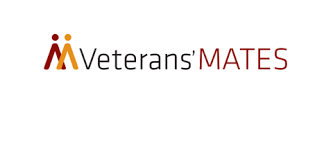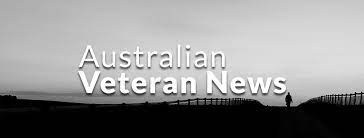Documents disclosed to several news outlets, including Australian Veteran News, reveal serious concerns about the Department of Veterans’ Affairs (DVA). They suggest the DVA misled the Information Commissioner about improperly handling veterans’ medical and personal information within the Veterans’ Medicines Advice and Therapeutics Education Services (MATES) program, a joint initiative with the University of South Australia (UniSA).

In its latest statement on the MATES program, DVA outlines the program’s nearly two-decade-long commitment to enhancing veterans’ health and wellbeing through personalized health and medication advice. Additionally, DVA describes the program as a vital proactive service that actively addresses real-life healthcare issues within the veteran community. Furthermore, DVA claims that program has impacted over 300,000 veterans, with around 77,000 receiving targeted health educational material each year.
While DVA highlights the extensive reach and positive impact of the MATES program over the years, recent revelations bring to light a contrasting narrative of concern, particularly regarding the Department’s handling of veterans’ privacy rights and the transparency of its informed consent processes.
DVA’s Neglect
A central issue in the unfolding controversy is DVA’s institutional blindness in relation to the privacy rights and handling of informed consent and communication with those veterans who have been included in the program. This is particularly evident in the way mandatory privacy and consent information is buried within the DVA website. This information is not easy to locate and you need to know what you are looking for to find it – hardly a step towards open communication and disclosure.
An additional issue is the tactic of gaining consent by opt-out processes built into the claims process. By incorporating consent into the broader framework of claims and compensation – areas governed by statutory entitlements – such actions obscured the true purpose and application of data collection. I would argue that the interweaving of different process in this way leads to consents being neither fully informed nor entirely optional. This practice not only compromises the integrity of the consent process but also raises serious ethical concerns about how an organisation respects and upholds the rights and well-being of the veteran community it serves.
UniSA Halts Program Amid Consent and Privacy Concerns
In a letter dated 17 August 2023 from the University of South Australia (UniSA) to the Secretary of DVA, Alison Frame, there is a clear indication of the University’s reliance on DVA for securing the necessary permissions and protections for participants in the program.
In the letter, the University expressed its commitment to the program and concerns over adherence to privacy standards following the decision by the Office of the Australian Information Commissioner (OAIC), the correspondence also referred to potential oversights on the part of the university.
As a crucial collaborator in the MATES program, UniSA (through its own Human Research Ethics Committee) is obliged to independently verify the adequacy of client permissions and data protection rights for any research it is involved in. This dual reliance and responsibility underscore the complexities and gaps in oversight that have contributed to the current predicament, raising questions about the thoroughness of ethical reviews and compliance checks performed by both the DVA and the University at the outset of the program.
It is astonishing to consider how a program such as MATES, designed to enhance the health and wellbeing of veterans, now finds itself mortally wounded due to faults in the system of governance that have been overlooked by everyone involved for nearly two decades.
The consequences of these oversights are far-reaching and deeply concerning. Not only does this situation risk the integrity of any published peer-reviewed research that has emerged from the program, but it also casts a dark shadow over the reputations of the individuals involved. Many of whom would have been unaware of the institutional failures surrounding them. While it might be fair to conclude that these failures have their origins in a lack of due diligence many years ago, there is an enduring issue of oversight and honesty that must be addressed.
While it might be fair to conclude that these failures have their origins in a lack of due diligence many years ago, there is an enduring issue of oversight and honesty that must be addressed.
This situation of systemic failures and lapses in oversight naturally leads to questions about the roles of higher authorities in veteran support, particularly the Repatriation Commission and the Military Rehabilitation and Compensation Commission. These independent bodies, tasked with overseeing Australia’s veteran support system, seem to have been notably absent in responding to this crisis. Their direct involvement in policy determination and liaison with veteran communities places them in a unique position to identify and address such anomalies and to advise the Minister for Veterans’ Affairs and the Parliament accordingly.
A Question of Ethics
The National Statement on Ethical Conduct in Human Research stands as the cornerstone for research ethics in Australia, offering an essential ethical framework considering these oversight issues and highlighting the shared duty of all involved in the conduct of such research. Accordingly, the National Statement serves as a standard for ethical research design, review, and conduct. It emphasises the collective responsibility shared by researchers, ethics committees, institutions, and funding organisations to ensure the quality, safety, and ethical acceptability of research.
The Statement outlines key principles such as research governance, justice, beneficence, and respect, underscoring the importance of informed consent as a voluntary choice based on adequate understanding and information about the research and its implications for participants.
The question of whether consent was adequately obtained and whether participants were subject to coercion or lack of plain language information raises serious concerns regarding the MATES Program’s compliance with accepted ethical standards. Instead of being a model for ethical conduct, the MATES program represents a disturbing departure from the National Statement’s guidelines on the matter of informed consent.
The Need for Redemption
As the MATES program’s consent issues surface, a DVA spokesperson has assured Australian Veteran News of DVA’s efforts to address these concerns, indicating a focused approach to resolving the highlighted challenges.
Regardless of whatever efforts that may follow, this troublesome episode underscores a fundamental need for independent oversight. Unfortunately, the Department of Defence and DVA Human Resource Ethics Committee (DDVA HREC) charged with overseeing such initiatives has shown that it is merely and equal in the system of ethics approvals, and as such relies on the efforts of others for its assurances. It’s clear that the complexities of this multi-agency program produced serious gaps in the system governance leading to the current situation. Multi-institutional programs such as MATES may very well warrant a higher level of scrutiny and governance, especially considering the potential of the reported involvement 300,000 veterans and family members.
As tempting as it may be to dismantle the whole thing to punish the perpetrators of this failure (most of whom would be long gone), there is also a moral duty to rescue the value created from two decades of research designed to help the most vulnerable and most at risk.
While MATES represents an unforgivable failure in terms of consent and privacy protection, it would be wrong to pronounce the program in its entirety as an unethical one. Moving forward, the guiding principle must involve intelligent reforms and rigorous oversight to ensure that the program can continue to serve veterans effectively and ethically. It’s about preserving the good while repairing the damage—a delicate operation that echoes the sentiment of not throwing out the proverbial baby with the bathwater.
Source: Australian Veterans News – Mark Schroffel

